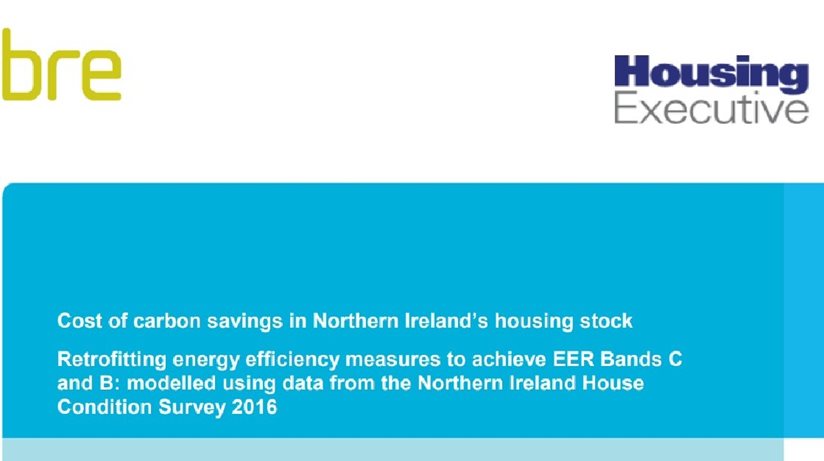Local households could save around £700 a year if their homes are adapted to meet modern energy standards, according to newly released Housing Executive research.
Nearly 600,000 dwellings across Northern Ireland must be upgraded, according to the Cost of Carbon Savings report, if carbon emission reduction targets are to be met.
You can download the:
Substantial investment - around £9.2billion - will be required to adapt older properties and this would deliver a reduction of 2.2million tonnes of carbon emissions every year as well as significant savings for local families.
Housing Executive Chief Executive Grainia Long, explained; “Moving to a Zero Carbon future is essential to avert the climate crisis.
“Northern Ireland currently produces around 13 million tonnes of carbon annually, so there is still a long road to travel if emissions are to be reduced to zero by 2050, and it is essential that we ‘lock in’ progress in this decade.
“Housing has an important role to play in this
“With the correct action, the housing sector could help reduce these emissions by over 2million tonnes every year, bringing us much closer to unlocking net zero.
“A number of approaches could be used, including sensitive new-build development, heating system upgrades and retro fitting older homes.
“A positive dividend would be produced in terms of tackling fuel poverty and providing significant savings to local families from their household budgets.
“Our research has demonstrated the need for ongoing investment in industries that have the technology, the capacity and the social innovation necessary in order to deliver net zero emissions targets by 2050.
“In addition, by investing in the decarbonisation of buildings, it could trigger a once in a generation opportunity to improve housing standards, reduce energy costs of households and create jobs.
“What a lever for sustainable growth, as we emerge from Covid-19!”
A range of innovative schemes are already underway which will help move the local housing sector towards a zero carbon future.
Grainia explained; “We’re already working with a range of stakeholders to produce solutions to some of these very complex problems.
“One example is the Rulet Project in Omagh, which begins this summer.
“Ten properties are participating in a pilot programme focused on twinning renewable technology and energy efficiency measures with agile tariffs to flat-line carbon consumption in the home.
“Another fifty properties are trialing the benefits from wind curtailment - helping us understand how to maximise the value of wind energy - and this will also be included in this study.
“A similar Housing Executive led pilot programme called HandiHeat is now also underway.
“A range of low carbon heating options are being tested in Co. Fermanagh and in Finland and we’re delighted to be playing such an integral role.
“Serious discussions are underway on how we can impact on the big global dilemmas facing us all – we’re delighted to be playing our part and research like this will help inform the debate and produce policy which benefits us all.”

